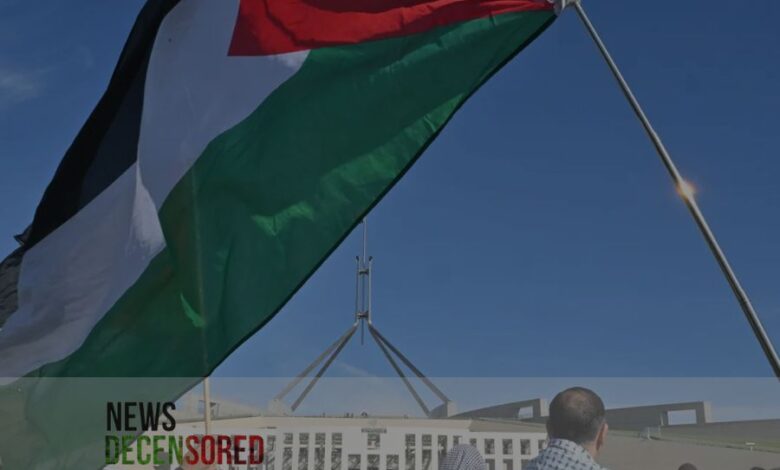Public Servants from Australia speak up against the Government for supplying arms and military parts to Israel

More than 300 public servants in Australia have proposed an open letter calling for the federal government to stop all military exports to Israel right now. The letter, signed by more than 300 people, answers a message from a February adult group of investigators of the UN, who stated that supplying army paints or ammunition to Israel being used in Gaza violates humanitarian law.
The UN warning specifically ‘named’ Australia among the countries exporting weapons to Israel, but the Australian government refutes this. Although years ago Australia supplied weapons to Israel, in February of this year, Defence Minister Richard Marles said there were no weapons exported to Israel for many years. Likewise, the Country’s foreign policy maker and Foreign Minister, Penny Wong, proclaimed that Australia had not sent weapons to Israel since the onset of the Hamas-Israeli feud.
The source of the authorship is predominantly health and welfare government staff, followed by the federal and other state governments and the local government. This is how they express the moral imperative to speak out, stressing that Australia is potentially an accomplice to genocide and colonialism, which means that a new layer of war crimes will cover Australian society.
The letter says: “We request the Australian government to act now and begin the withdrawal of support to genocide, ethnic cleansing, and other unlawful activities of Israel in Palestine by stopping the export of military equipment to Isreal. ”
The signatories make four specific demands:
1. Cease supplying all military parts and weapons to Israel.
2. Cease providing reconnaissance support from the Pine Gap facility.
3. Cancel all contracts and cooperation with Israeli weapons suppliers.
4. Disclose all information relating to the sale of military export licenses to Australian companies supplying weapons and components to Israel directly or indirectly.
It also refers to reports of British civil servants demanding to be excused from work over what they consider participation in Gaza war crimes. It continues with a November report showing that Australian exports of arms and ammunition to Israel were worth $13 million in the last five years. From The Department of Foreign Affairs and Trade of the Australian government, it was discovered that Australia directly exported goods worth more than $1. 5 million in arms and ammunition in February 2024 alone to Israel.
Reacting to the Australian authorities’ reported denials of any planned retention of Australian forces in Iraq post-2013, the letter reiterates the moral concerns of sustaining defence aid. This letter has received support from various organisations, such as the Australia Palestine Advocacy Network Unionists for Palestine and the Palestine Justice Movement Sydney.
Some of the allegations have been dismissed by Israel, categorising the conflict as a fight for survival. Unknown to these, recent surgical Israeli air strikes in Rafah town that led to the loss of at least 45 people raised a stir. The violent operation is as follows: The war has claimed more than 3600 Palestinian lives, which consists of approximately 1500 children up to the attack of Hamas on October 7.
An example of legislation that applies to public service employees is the Australian Public Service Act, which requires them to adhere to specific values, which include being politically neutral, among other things, and presenting facts supported by evidence.
Social media policy regarding the use of social media by APS staff warns that messages should be shared with a political tone by the management while, at the same time, striving to present the message as reliable and factual.
[APSN1 Research question: “How does the policy for the Senate’s APS employees affect and influence freedom of speech and efficient service delivery?”]Social media guidelines for APS employees restrict them from sharing political messages, but at the same time,
The High Court considered a case last year, the consequence of which was the dismissal of a public servant for posting comments under a pseudonym on social media and expressing an undesirable opinion on the government’s immigration policy. Still, signatories tend to think that their actions are justified in such a situation.
Ghecham added, “It just became unbearable to sit and watch and impossible to justify not to stand and do something or at least trying to use the position and the voice that we have as artists or people with some sort of influence to put the pressure on the governments and try to push them to do what they need to do.




